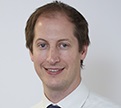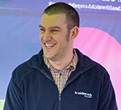
 The delay between this blog and the last one in November on the new King’s Fund Collaborative Pairs Programme reflects the level of work that we have been dealing with over the past few months. We write this after our final session on the Collaborative Pairs course at the King’s Fund headquarters in Cavendish Square. We have written before about the nature of the course, but now that it has come to an end it is time to reflect on what we have learned.
The delay between this blog and the last one in November on the new King’s Fund Collaborative Pairs Programme reflects the level of work that we have been dealing with over the past few months. We write this after our final session on the Collaborative Pairs course at the King’s Fund headquarters in Cavendish Square. We have written before about the nature of the course, but now that it has come to an end it is time to reflect on what we have learned.
By way of a brief update, the course brought us together as patient representative and clinician to work on a “shared issue” facing our local community. We have been working to embed a culture of patient and public engagement as normal practice within the Vanguard programme at North East Hampshire and Farnham clinical commissioning group (CCG). Our previous blogs give more detail about the shared aims and values that motivate us to do this work.
So what have we taken away from the course? The King’s Fund has allowed us much needed space and time to work together away from our places of work. This has been extremely valuable, as the chance to put a whole day aside once a month to concentrate on patient engagement and leadership is not an easy thing to do without the structure and support of the course to refer to as a reason. The majority of the 24 strong cohort on the course all said that the King’s Fund name in itself was proving a useful influential tool.
Our facilitators encouraged us to think differently about the way we interact with colleagues back in the workplace, and shared both practical skills and theory to support what we are all trying to achieve. This included thinking carefully about asking the right people the right questions, being politically aware within the organisations we are working in, and developing a public narrative—the ability to tell the “story of us” and articulate our objectives and call to action in just two or three minutes.
This was much more difficult than we first thought, and even after four hours of thinking about it we hadn’t perfected this technique. We were also encouraged to reflect on our body language, how situations made us feel, and to become more self-aware—something that initially feels unnatural, but which soon starts to become more comfortable. All of this felt so sensible and easy in the company of our fellow course participants.
Back in the real world, however, is where it all needs to be put into practice. This has proved more difficult. The space to work together becomes much more limited (we work at opposite ends of the county). Furthermore, when put in a pressurised situation the brain struggles to recall how to ask the right sort of questions, and instead becomes defensive about the work and values of patient engagement, with our awareness of body language all but forgotten. That’s not to say that the learning isn’t useful—it is. It’s just that the practicalities of the workplace mean that we will have to work really hard to ensure that we use the skills that have been shared with us.
And what has become of our shared problem? We have achieved a great deal in the past few months. True and meaningful engagement is beginning to take place: a community of over 80 “community ambassadors” has been established and we are seeing engagement being considered (by some) at the very early stages of service development.
Our aim of co-produced services throughout the CCG, however, is something that will take much longer than the six month lifespan of the course. It will take longer than the year or two that the Vanguard programme will run, and it may even take longer than either of us cares to imagine, but our involvement in the collaborative pairs programme has left us with more skills, awareness, and enthusiasm to keep on trying. We have reached the end of the beginning, but there is still a long way to go.
The King’s Fund is currently recruiting for the second run of the course. For more information visit: http://www.kingsfund.org.uk/leadership/leading-collaboratively-patients-and-communities
For more information about the Vanguard programme in North East Hampshire and Farnham visit: http://www.northeasthampshireandfarnhamccg.nhs.uk/vanguard
Written collaboratively by Edward Wernick, GP and clinical director for quality and patient and public engagement, North East Hampshire and Farnham CCG, and Steve Manley, interim manager, Healthwatch Hampshire.
Competing interests: Steve Manley is the interim manager for Healthwatch Hampshire. Edward Wernick is a GP partner at the Downing Street Group Practice, Surrey, and a practising GP. He is a clinical director at North East Hampshire and Farnham CCG.
